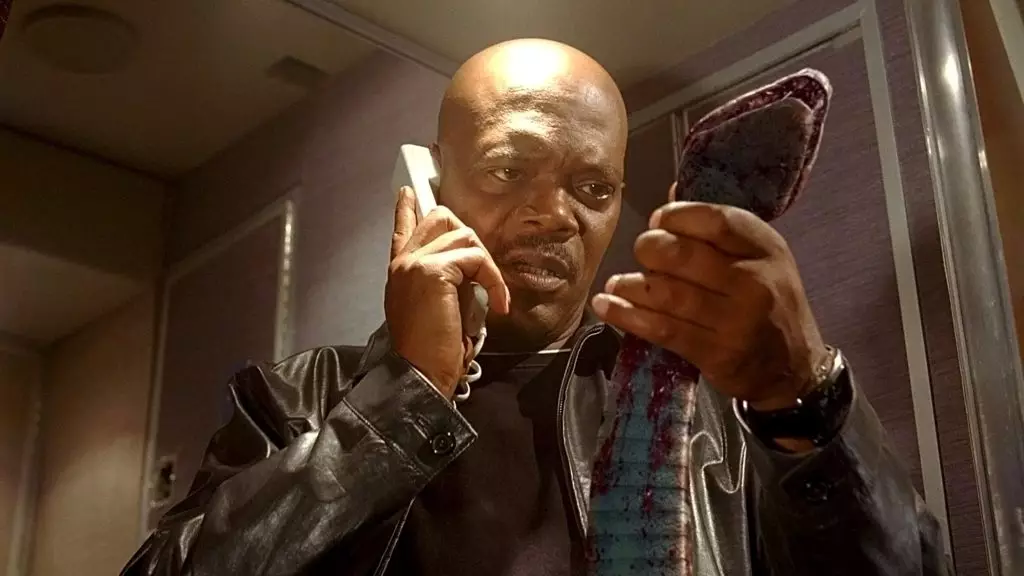The debates surrounding film ratings often expose underlying tensions between creative vision and corporate interests. One notable instance of this dynamic played out during the production of *Snakes on a Plane*, a 2006 cult classic featuring Samuel L. Jackson as FBI Agent Neville Flynn. Jackson’s insistence on maintaining the authenticity of his character’s dialogue sheds light on how cinematic integrity can be compromised by an unwillingness to embrace adult themes.
The Fateful Decision
Originally conceived as a PG-13 film, *Snakes on a Plane* faced significant creative pushback due to its reliance on strong language. Samuel L. Jackson, a veteran actor known for his commanding presence and no-nonsense performances, made his stance clear when he stated, “I gotta say motherf***er in this movie.” The studio’s discomfort with this explicit content led to heated discussions about the film’s direction. Initially, it seemed that the MPAA rating would stifle a quintessential element of Jackson’s character, reducing the film’s potential for authenticity.
As Jackson recounted during an interview, the compromise turned out to be detrimental for both the studio and the film’s creative direction. After test screenings revealed that audiences connected with the unapologetic nature of the material, the studio resorted to reshoots—a financial decision that underscored the film’s eventual pivot back to a more explicit R rating. The monetary investment in reshoots illustrates the lengths to which studios will go to satisfy core audience expectations, even if it means initially ignoring the visionary input of the actors.
Cultural Resonance and Impact
The iconic line, “I have had it with these motherf***ing snakes on this motherf***ing plane,” showcases how pivotal language can be to character building and audience engagement. From its inception, the phrase entered popular culture, symbolizing a kind of chaotic bravado. Jackson’s delivery transformed a ridiculous premise into a memorable cinematic moment that resonated with viewers, ultimately transcending the film’s initial critical reception.
Though the film garnered mixed reviews, its infectious nature and cult following cannot be understated. The very essence of its appeal lies in its camp value, providing a humorous yet thrilling escape from reality. Furthermore, the film’s box office performance of $62 million, despite falling short of expectations, hinted at a growing appetite for niche cinematic experiences that embrace absurdity over formulaic storytelling.
*Snakes on a Plane* serves as a vital case study in understanding the complex interplay between censorship, creative freedom, and cultural impact. Samuel L. Jackson’s unwavering commitment to his character adds layers of authenticity that reverberate with audiences long after the credits roll. Ultimately, the film reminds filmmakers of the importance of embracing their artistic vision, even in the face of marketing pressures and industry conventions. Through Jackson’s insistence on the R rating, a cinematic treasure was preserved, leaving an indelible mark on popular culture while illustrating the significant role that dialogue plays in storytelling.

